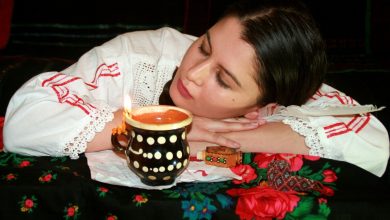Lifestyles That Promise Happiness

1. Ikigai
Ikigai is actually a human being’s reason to live. In Japanese culture, each person is believed to have a cause, but finding that cause may require a search. The word Ikigai is divided into two elements. Two creatures / life and meaning, kai means fruit, value or purpose.
In Japanese culture, the ikigai ideology is what drives people to dedicate so much to their work. Unemployment in Japan is incredibly low. This is because the mentality as a nation is that it is better to do all kinds of jobs than not work at all. There is less stigma and prejudice in Japan about what others see as unskilled or drudgery. Every job commands a level of respect and works as part of the best. In terms of daily life, the ikigai theory is a simple theory. If you find purpose in what you do, you will value and work better. Therefore it is important to find out what your purpose is; Many Japanese join clubs and organizations to discover their goals and participate in common activities.
2. Guyub
It is this lifestyle that originated in Indonesia. Javanese know guyubu as a way of relating to each other in the community. It means a strong sense of belonging to each other, mutual affection and sincere support. In a village, everyone not only meets but also helps others in times of need. Everyone enjoys helping others and sharing their happiness.
3. Ho’oponopono
Its origin is Hawaii. Ho’oponopono is the moral practice of taking corrective actions. Basically, it means discussing problems and finding solutions using spiritually mindful behavior in order to restore injured relationships. According to the Hawaiian dictionary made by Pukui and Elbert, it means correcting things and mental cleansing.
4. Fee la bella figura
It is a teaching originating in Italy. To literally mean ‘making a beautiful figure’ means making a good impression. Foreigners often associate this with the Italian obsession with wearing stylish clothes and being extremely well-dressed. However, the concept goes beyond superficial. It also encompasses customs and manners such as possessing grace and sophistication in public. It has the motto to present yourself well to the world in every way and life will reward you greatly.
5. Gezelligheid
It is a teaching originating in the Netherlands. While not open to translation, the Dutch word gezelligheid captures a sense of well-being that transcends linguistic boundaries. Like campfires, meeting old friends, warm sweaters or spending time with the things and people you love.
6. Buen vivir
It is a doctrine of Ecuadorian origin. Buen vivir means “good life”. In Ecuador, more emphasis is placed on the individual and society. People always act with society in mind while recognizing themselves as part of the wider natural world. Ecuadorians value the simple things in life more: a good harvest, family health, and a shining sun.
As a developing country, Ecuador has had to overcome difficulties such as extreme financial difficulties and natural disasters; this has often left people with little financial property in need of support from the family and society. Buen vivir; Living well, regardless of someone’s socio-economic status, is more about appreciating what you have now than what they might have.
7.Tachles
It is an Israeli teaching. Tachles is a word that summarizes Israel’s mentality to go directly to the subject, not to be spoofed. Israelis appear directly and say what they think. The Tachles mindset helps to express opinions more openly and honestly.
8.Wu wei
It is a teaching of Chinese origin. Wu wei means ‘not to resist’, ‘not to conflict’, and is a Taoist concept that means letting outside forces work with you without backing down against them. The best way to do this is to stand still without excessive effort.





